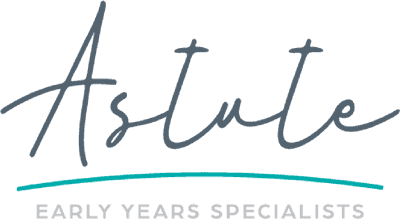In the bustling tapestry of a thriving community, one crucial thread often overlooked is the provision of quality early childhood education and care. Beyond its immediate benefits for families, early childhood education forms the cornerstone of a flourishing society. Studies have repeatedly shown that investing in early childhood education yields substantial long-term societal rewards, creating a positive ripple effect that extends far beyond the individual child.
The Foundational Stage of Learning:
Early childhood, typically defined as the period from birth to eight years old, is a critical phase of development that shapes a child’s cognitive, emotional, and social growth. During these formative years, a child’s brain undergoes rapid development, making it particularly receptive to external stimuli and learning experiences. High-quality early childhood education programs leverage this critical period to lay a solid foundation for lifelong learning, ensuring that children acquire essential skills and competencies that serve as building blocks for future academic and personal success.
Cultivating Social and Emotional Well-being:
Beyond academic knowledge, early childhood education plays a pivotal role in fostering social and emotional development. Interactions with peers and educators in a nurturing environment facilitate the development of essential interpersonal skills such as empathy, cooperation, and conflict resolution. Moreover, the provision of a safe and supportive atmosphere during these early years can significantly impact a child’s emotional well-being, nurturing a sense of security and self-confidence that forms the bedrock of their future relationships and overall mental health.
Equity and Inclusivity in Education:
Accessible and high-quality early childhood education programs promote equity and inclusivity within communities. By providing all children, irrespective of socio-economic background, with a solid educational foundation, these programs help bridge the gap between disadvantaged and privileged children, creating a more level playing field for future academic and professional pursuits. Moreover, inclusive early childhood education fosters a culture of diversity and tolerance from a young age, instilling in children a sense of respect for others and an appreciation for different cultures and perspectives.
Supporting Working Families and Economic Growth:
A robust early childhood education and care system not only benefits children but also supports working families and drives economic growth. By offering reliable and affordable childcare options, such programs enable parents, particularly mothers, to participate more actively in the workforce, thereby increasing overall productivity and economic output. Furthermore, access to early childhood education and care facilities empowers families to make informed decisions about their careers and financial stability, ultimately leading to improved quality of life and socio-economic mobility.
Community Development and Long-Term Impact:
Investments in early childhood education and care yield multifaceted long-term benefits for communities. Research indicates that individuals who have had access to quality early childhood education are more likely to graduate from high school, pursue higher education, and secure stable employment, thereby contributing positively to the growth and vitality of their communities. Additionally, these individuals are more inclined to lead healthier lifestyles, actively engage in civic activities, and contribute to the social and economic fabric of their communities, creating a cycle of positive impact that extends across generations.
Early childhood education and care represent a linchpin in the holistic development of thriving communities. By nurturing young minds, fostering inclusivity, and supporting working families, these programs play a vital role in shaping the future of society. As we recognize the immense value of investing in the early years, it becomes imperative for policymakers, educators, and community stakeholders to prioritise the development and implementation of comprehensive early childhood education and care initiatives. By doing so, we can lay the groundwork for a more equitable, prosperous, and cohesive society, where every child has the opportunity to thrive and contribute meaningfully to the fabric of their community.
We are so proud to announce the launch of “These Are Our Children,” a new campaign seeking a whole-of-community approach to highlight the crucial role accessible, high-quality childcare plays in thriving regional communities.









